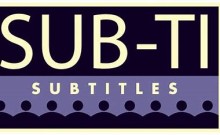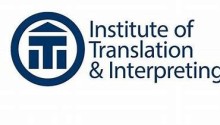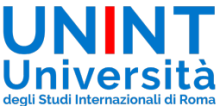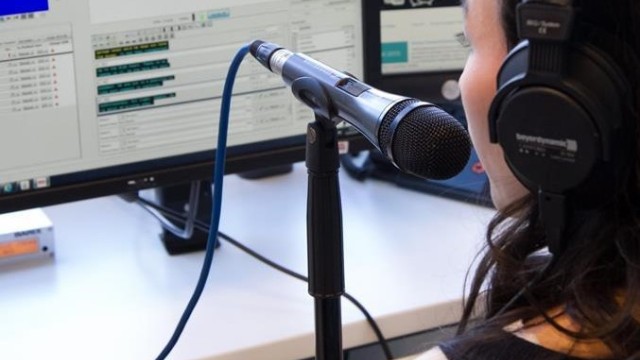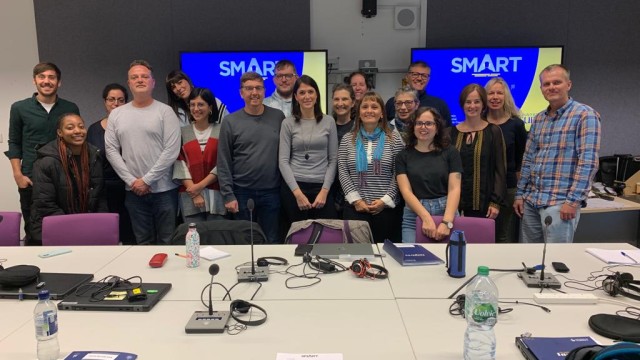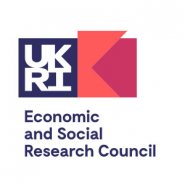
SMART-UP: Shaping Multilingual Access through Respeaking Technology – Upskilling
Start date
November 2023End date
November 2024Overview
Real-time subtitling is an advanced technique based on the interaction between a human and speech recognition software, making live content accessible to deaf and hard of hearing audiences. Demand for these services is increasing rapidly, with a particular growth area emerging in live interlingual subtitling, where content is subtitled from one language to another.
This ESRC IAA-funded project will be helping to identify current barriers to the uptake and development of interlingual subtitling, which include an acute lack of trained professionals who are able to deliver the service, and address these by producing a certified training offering.
The project will further the impact of existing ESRC funded research, the SMART project, which focused on an emerging technique for live subtitling - respeaking - the leading method for live intralingual subtitles for live events of all kinds.
By partnering with key stakeholders including broadcasters and subtitling providers, this new project will build on an ‘upskilling-for-testing' course prototype developed by the SMART team, with the aim of turning this into a fully-fledged, adaptable and customisable continuous professional development (CPD) model. The long term goal is to upskill language professionals to reduce the current skills barrier that prevents widespread adoption of live interlingual subtitling across the globe.
Team

Principal Investigator
Dr Elena Davitti
Associate Professor in Translation Studies
Biography
I am an Associate Professor in Translation Studies with expertise in interpreting, both conference and dialogue. I am also Programme Leader of the MA Interpreting (Multilingual pathway) and MA Translation and Interpreting offered by the Centre for Translation Studies (CTS) where I am based. I hold a PhD in Translation and Intercultural Studies from the University of Manchester and an MA in Conference Interpreting from the University of Bologna at Forlì. Before joining Surrey in 2013, I practised as a freelance interpreter and translator and worked as interpreter trainer at different universities both in the UK and in Italy, such as the University of Leeds, University of Birmingham, University of Macerata and UNINT, Rome. I am currently working on hybrid modalities at the crossroads of traditional disciplines such as translation, interpreting , subtitling, with a particular interest in real-time speech-to-text communication across languages.
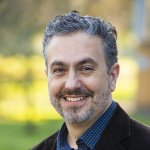
Co-Investigator
Dr Felix do Carmo
Senior Lecturer in Translation and Natural Language Processing
Biography
I am a Senior Lecturer in Translation and Natural Language Processing, working on the application of natural language processing, machine learning, machine translation and assisted translation technologies in translation research, teaching and practice. Before joining the University of Surrey, I spent over 20 years as a translator, reviser, translation company owner, translator trainer, university lecturer and translation conference organiser in Porto, Portugal. In 2017, I moved to Ireland, to work for two years as a full-time post-doctoral researcher at the ADAPT Centre in Dublin City University, where I carried out research related to translation technology.
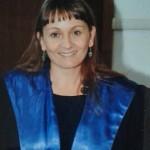
Co-Investigator
Annalisa Sandrelli
Lecturer (Consecutive Interpreting; Interlingual Respeaking). Interpreting Unit Coordinator - UNINT - Roma
Biography
Prior to joining UNINT as a Lecturer in English Language and Translation in 2008, Annalisa Sandrelli taught at the universities of Trieste and Bologna at Forlì, and she was Marie Curie TMR Fellow and Lector in Italian at the University of Hull. Over the years she has taught a variety of modules in Interpreting, Film Language and Audiovisual Translation, Audiodescription and Respeaking. She has published widely on corpus-based interpreting studies, audiovisual translation, EU English, legal interpreting, and Computer Assisted Interpreter Training (CAIT). She is a member of the European Society for Translation Studies (EST), of the European Association for Studies in Screen Translation (ESIST), AIA (Association of English Studies in Italy) and ESSE (European Society for the Study of English), and she is Associate member of GALMA (Galician Observatory for Media Accessibility). She has taken part in several EU-funded projects on legal interpreting and translation (Building Mutual Trust, Qualitas, Understanding Justice) and she coordinated several research projects on audiovisual translation (DubTalk, TVTalk, Sub!: Localisation Workflows (th)at Work 1 and 2). In the respeaking field, she participated in the pilot projects SMART (Shaping Multilingual Access with Respeaking Technology) and SMART2 with the universities of Surrey and Vigo, and was International Co-Investigator in the ERSC-funded SMART (Shaping Multilingual Access with Respeaking Technology) led by the University of Surrey in 2020-2022. She was also a Member of the Advisory Board on the ILSA-Interlingual Live Subtitling for Access project (Erasmus+ 2017‐1‐ES01‐KA203‐037948) and Quality consultant in the LiveTextAccess (LTA) project (Erasmus+ 2018-1-DE01-KA203-004218). She has given talks and workshops on audiovisual translation in Italy (Bari, Florence, Macerata, Pisa, Ragusa, Rome, Venice, Viareggio, Trieste, Turin) and around the world (Antwerp, Barcelona, Berlin, Dubrovnik, Geneva, Roehampton, Sheffield, Surrey, Stockholm, UCL, and Vitoria. She is a practicing interpreter and film translator.
We are thrilled to be working collaboratively with Sky, SUB-TI Ltd, On Call Language Services, Institute of Translation and Interpreting and Universita degli Studi Internazionali di Roma
Planned Impact
This project will help to ensure a sustainable and inclusive approach to upskilling that paves the way for responsible commercialisation and adoption by stakeholders worldwide. The outputs have the potential to deliver sizeable societal benefits to the deaf and hard-of-hearing communities globally, improving accessibility to live content in any language, and will also positively impact career opportunities for language professionals.

